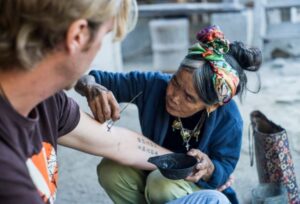Natalia Grace Barnett, a Ukrainian-born individual who became the center of an international legal and media storm, has captured the public’s fascination with a story that blends elements of mystery, drama, and legal intrigue. Her case has sparked heated debates about ethics, legality, and the complexities of human psychology. This article delves into the intricate details of Natalia Grace Barnett’s story, examining the events that unfolded, the legal battles, and the broader implications of the case.
Background: Who Is Natalia Grace Barnett?
Natalia Grace Barnett was born in Ukraine in 2003, and her early life remains shrouded in secrecy. She was adopted by Michael and Kristine Barnett, an American couple from Indiana, in 2010. The Barnetts were a seemingly ordinary family with three biological children and a strong desire to help children in need through adoption. Natalia’s adoption was intended to provide her with a stable and loving environment, but what transpired would become a high-profile legal case.
The Adoption
The Barnetts’ adoption of Natalia was motivated by their desire to give a child a better life. Natalia was presented as a young girl with a range of medical and developmental needs. However, the Barnetts soon faced challenges that would alter their perception of the adoption. The family initially reported difficulties in Natalia’s behavior and health, which they attributed to her background and the trauma of her early years.
The Controversy Unfolds
In 2013, the Barnetts began to experience serious difficulties with Natalia. They reported that Natalia exhibited behaviors and physical characteristics that led them to question her age and identity. The Barnetts claimed that Natalia, who was supposed to be a young child, displayed behaviors and physical traits more typical of an adult. This led them to suspect that Natalia might not be a child at all but rather an adult posing as a child.
Their concerns prompted a series of investigations. The Barnetts consulted medical professionals who conducted evaluations and concluded that Natalia’s chronological age did not match her physical appearance and developmental stage. These evaluations led to the Barnetts’ belief that Natalia was much older than her official age and possibly even an adult.
The Legal Battle
The Barnetts’ decision to legally change Natalia’s age was a pivotal moment in the case. In 2013, the court officially reclassified Natalia’s age, declaring her to be an adult, based on the medical evaluations and evidence presented. This decision allowed the Barnetts to legally distance themselves from Natalia, who was then left to navigate her life independently.
The situation took a dramatic turn when, in 2019, Natalia was found living alone in an apartment, having been abandoned by the Barnetts. Natalia’s situation attracted media attention, and the public was shocked by the circumstances of her abandonment. The Barnetts faced accusations of neglect and abuse, and the case garnered widespread media coverage.
The Accusations
The Barnetts were accused of neglecting and abandoning Natalia after having reclassified her as an adult. Critics argued that the Barnetts’ actions were morally and ethically questionable, and there was significant debate about whether Natalia’s age and condition had been accurately assessed. The legal system was thrust into the spotlight as it grappled with the complexities of the case.
Natalia’s defenders argued that the Barnetts had acted irresponsibly and that the reclassification of her age was a form of exploitation. They contended that Natalia, despite the Barnetts’ claims, was still a vulnerable individual who deserved proper care and protection. The case raised questions about the responsibilities of adoptive parents and the legal system’s role in ensuring the well-being of children.
The Legal Proceedings
The legal proceedings surrounding Natalia Grace Barnett were complex and contentious. The Barnetts faced charges related to neglect and abandonment, while Natalia’s legal team argued that her age and condition had been misrepresented. The case was further complicated by conflicting medical opinions and varying interpretations of the evidence.
In 2020, the legal battle intensified as new evidence emerged, and the case continued to draw media attention. The Barnetts’ defense argued that they had acted in accordance with the legal and medical advice they had received, and that their actions were justified given the circumstances. Natalia’s advocates, on the other hand, maintained that the Barnetts had failed to provide proper care and had acted irresponsibly.
The Media and Public Reaction
The Natalia Grace Barnett case captivated the media and public with its dramatic elements and moral questions. The media coverage was extensive, with sensational headlines and emotional narratives shaping public perception. The case was featured in documentaries, news articles, and television programs, which contributed to the polarizing views surrounding the controversy.
Public opinion was divided, with some people sympathizing with the Barnetts’ plight and others condemning their actions. The case sparked discussions about the ethics of adoption, the responsibilities of adoptive parents, and the challenges of dealing with children with complex needs.
Ethical and Psychological Considerations
The Natalia Grace Barnett case raises significant ethical and psychological questions. One of the central issues is the reliability of medical evaluations in determining age and developmental status. The case highlights the challenges of diagnosing and treating individuals with complex medical and psychological conditions, and the potential consequences of misdiagnosis.
Additionally, the ethical implications of the Barnetts’ decision to reclassify Natalia’s age and abandon her are complex. The case underscores the need for careful consideration of the well-being of vulnerable individuals and the responsibilities of those in positions of authority.
Legal and Policy Implications
The Natalia Grace Barnett case has had implications for legal and adoption policies. The controversy has prompted discussions about the procedures for assessing the age and condition of adopted children, and the legal responsibilities of adoptive parents. The case has also highlighted the need for clearer guidelines and protections for individuals in similar situations.
Legal experts and policymakers have examined the case to identify potential reforms and improvements in the adoption and child welfare systems. The goal is to prevent similar situations from arising in the future and to ensure that the rights and well-being of adopted children are adequately protected.
Conclusion
The Natalia Grace Barnett case is a complex and multifaceted story that touches on themes of ethics, legality, and human psychology. The controversy has prompted significant debate and reflection on the responsibilities of adoptive parents, the reliability of medical assessments, and the protection of vulnerable individuals.





